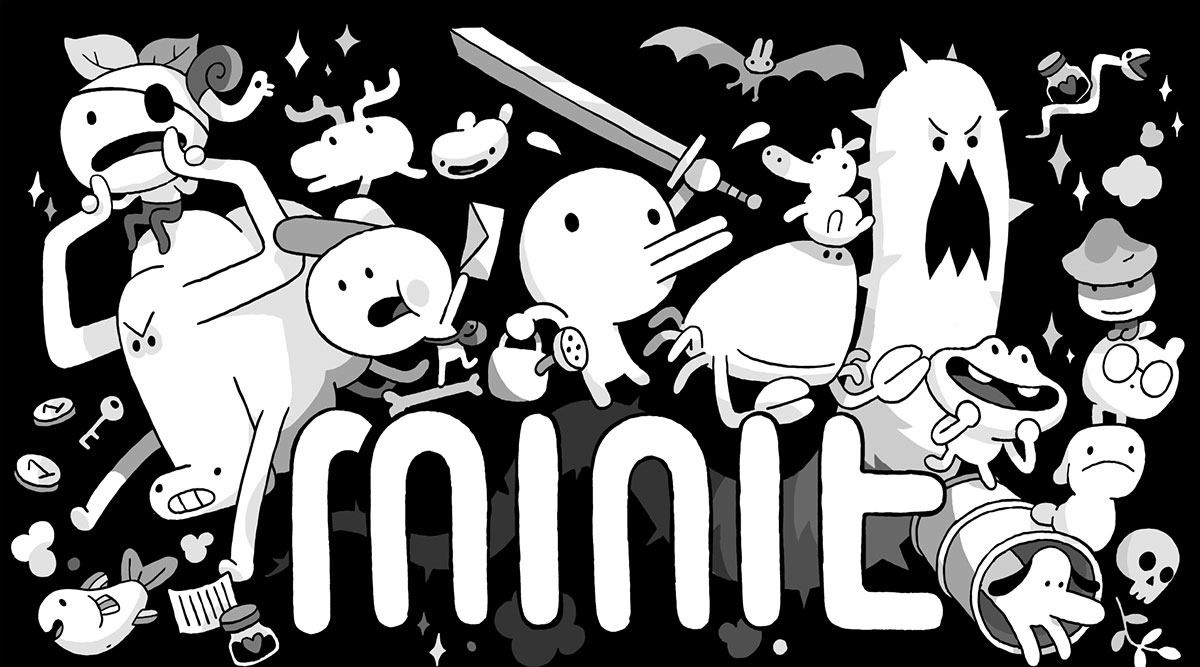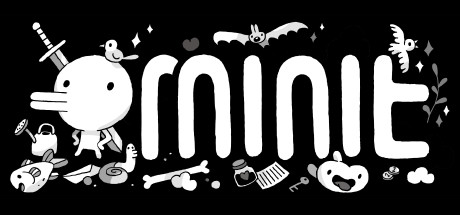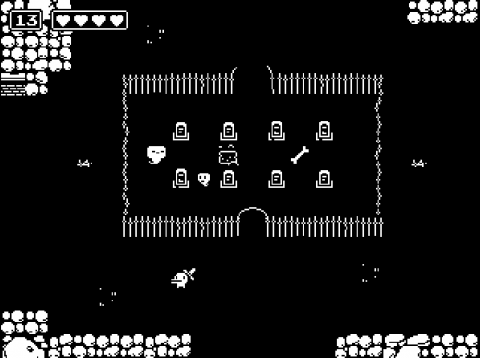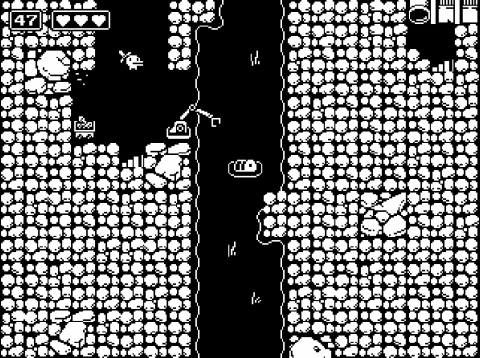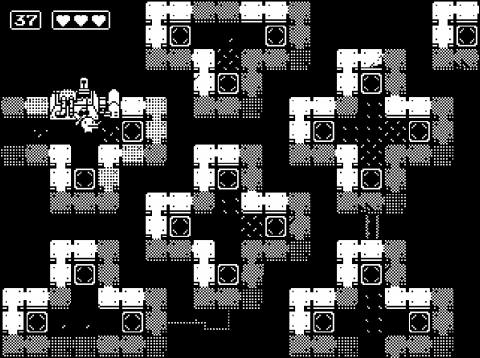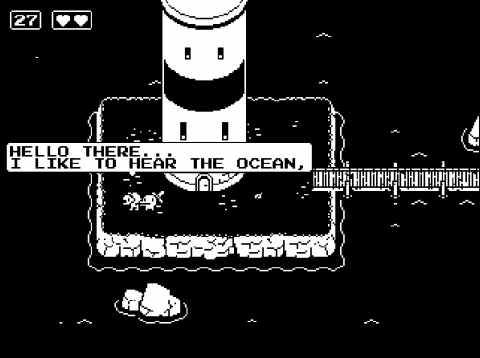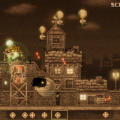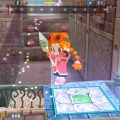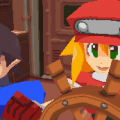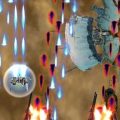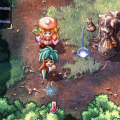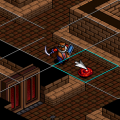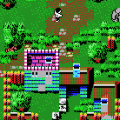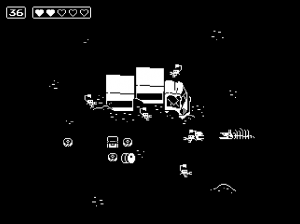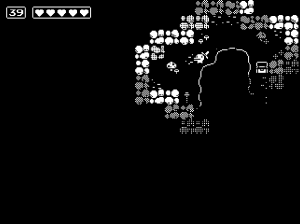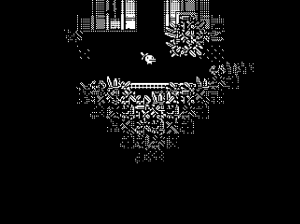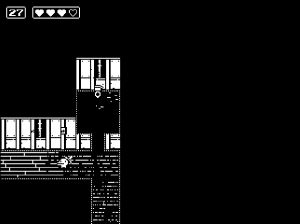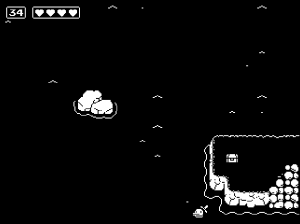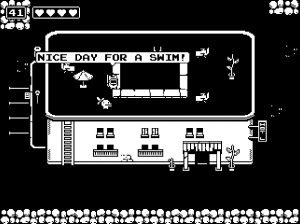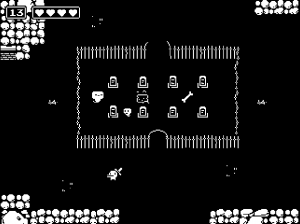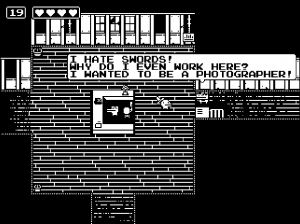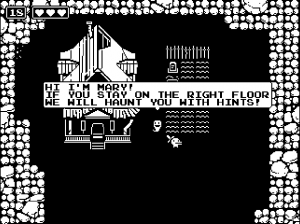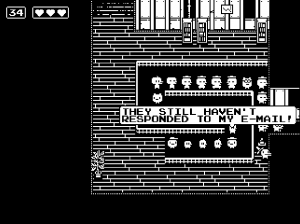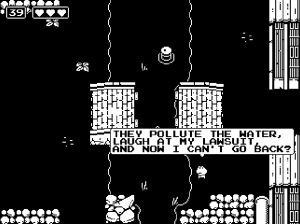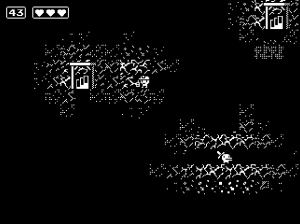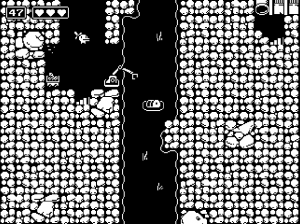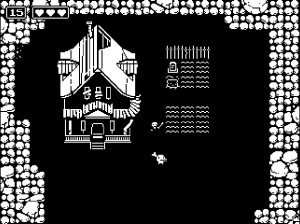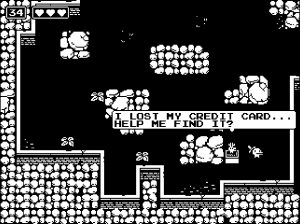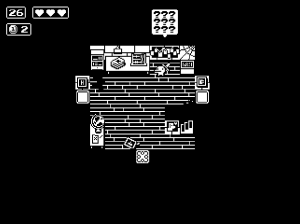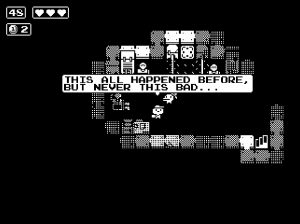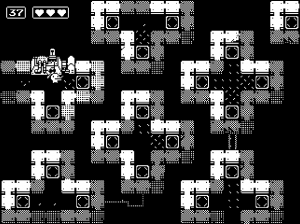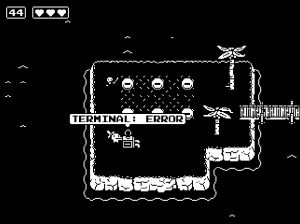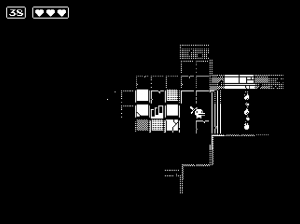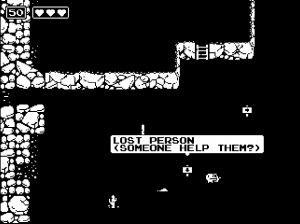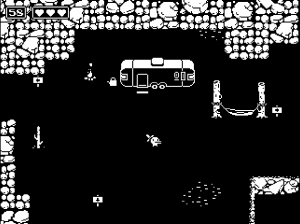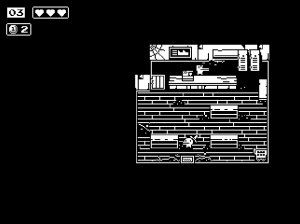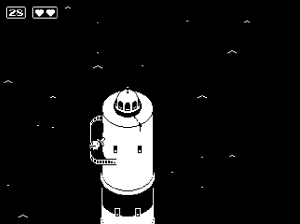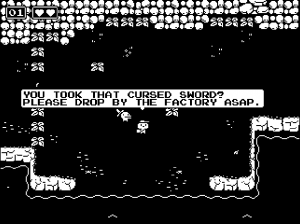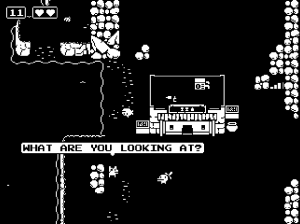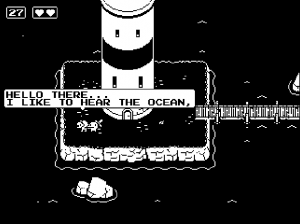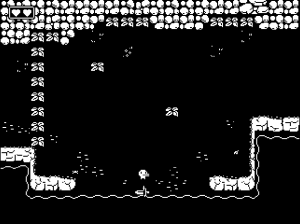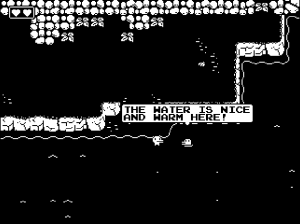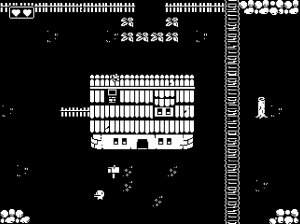Minit was developed by a diverse, small team of artists and published by Devolver Digital, a Texas-based company known for its success with indie titles since publishing Hotline Miami in 2012. On the development team is Jan Willem Nijman, one-half of Vlambeer, the studio behind Nuclear Throne, Kitty Calis, a game dev who contributed to Horizon Zero Dawn among other titles, freelance composer Jukio Kallio, and Dominik Johann from Crows Crows Crows, William Pugh’s studio.
The small development team was clearly beneficial to the game’s distinct artistry and tone. Minit often feels like the work of a singular indie auteur working on a childhood dream project.
Minit is a series of NPC-fueled fetch quests spread across hundreds of 60 second life spans, as the player is forced to respawn after every minute, keeping items collected and progress made. It recalls the time cycle of The Legend of Zelda: Majora’s Mask, but ends up feeling more like a speedrun version of an epic Link’s Awakening sidequest.
Players control a cute monochrome duck-blob who awakens in his pastoral monochrome home. All is calm. On the nearby beach, a sword is found. The sword puts a video game curse on the protagonist, making his life restart every minute until the curse is lifted. Music chimes in and Minit‘s short adventure begins.
Gameplay sequences are built around solving lock-and-key progress puzzles in very short bursts of time. A cave north of the duck-blob’s home seems to be the way forward, but it’s too dark and dangerous. An NPC in a shop remarks about a crab problem, so the player defeats all the crabs in the area (under the strict time limit).
Pleased, the shopkeeper gives up an energizing Coffee item, which allows the player to push in-game boxes. There’s a lighthouse key behind a box a bit further out into the wilderness. The player returns to the lighthouse and collects the flashlight at its top. The cave can now be illuminated. There’s an absurdist, Zelda-like logic to the fetch quests, and very alert players will breeze through some of the game’s easier to miss clues.
Because the time mechanic limits exploration, unlocking shortcuts and thoughtful maneuvering are the meat and potatoes of Minit. There are four safe houses to reach, which act as respawn points when visited (similar to the bonfire of Dark Souls). Navigating the world (essentially one large puzzle) can be confusing at first, but as the player reaches the safe houses and unlocks fast travel warp points back to the beginning area, Minit‘s map becomes small and easily mastered.
At the heart of the gameplay rhythm is an instant-death button, which resets the 60 second run and respawns the player at whichever house was last visited. Players become hyper aware of their surroundings and the entire pace of time changes, with even a few seconds making an incredible difference. How slow an NPC is grumbling out a secret or how long it takes to climb some stairs becomes part of the game world’s puzzle.
No roadblocks in Minit are difficult enough to make the timer frustrating or too urgent, instead adding a bit of thrill to basic adventure game actions. A harder difficulty is unlocked upon completing the main game, and a third, ghost-themed version of the game can be unlocked after that. Repetition is so quick that the loops never become boring. The player’s mind begins to work as fast as the game’s timer ticks.
A cursed sword is the narrative push in Minit, and what minimal plot there is involves reaching a cursed sword factory and solving its conspiracy. Moods and tones shift with the excellent soundtrack and abundance of dark underground passages. NPCs with tiny word bubbles express dreams, goals, and frustrations and fill every corner of the game map. Few pixels are gone to waste.
Minit bears resemblance to another of Devolver Digital ‘s retro minimalist titles, Ojiro Fumoto’s Downwell, in terms of aesthetics but also in terms of a concise game design philosophy (and the fact that players will see many, many deaths). Minit is not exactly challenging, and even though a puzzle or two can be tricky, the game can be easily completed in less than two hours. Gameplay is quick and refreshing, and the game never wastes a player’s time. New content, item mechanics, charming NPCs, and beautiful tilesets are burned through quickly.
Due to the game’s brisk length, its world is a bit flat, but still a joy to navigate through. Each sequence becomes a fleeting memory. Minit relies on charming and absurd, lovely details to liven the player’s experience. These details are often smart and unexpected. Non-sequitur NPC dialogue is not used as a crutch to make the game quirky in a shallow way, as gameplay sequences and even the game’s setting menu (try turning on “Vegan Mode”) contain little acts of video game poetry to keep things interesting.
Any description of a few details in Minit will radiate with RPG magic. There’s an octopus at the bottom of some ruins in the middle of the desert who has misplaced all his tentacles around the world. There’s a professional hotel guest stuck in a crate looking for his lost credit card in a haunted forest (a puzzle highlight). There’s a moment where the player knows she must find a way past tree stumps and then meets a sign-maker cutting down trees – a saw is on the ground nearby, but it is arbitrarily not a key item for the player to pick up (a slight visual joke, intended or not).
Minit was originally released on Microsoft Windows, macOS, Linux, Xbox One, PlayStation 4 in April 2018, with a Switch port out in August of that year. The versions are almost identical, with only slight differences (the console versions don’t contain the camera item, for instance). It received critical praise from sites like Destructoid and Rock Paper Shotgun, as well as a “Best Indie Game of 2018” nomination at the Golden Joystick Awards (losing to Motion Twin’s Dead Cells).
Regardless of reviews and awards, Minit is a pleasure to play and is an admirable attempt at evoking its dream-like Game Boy ancestors. It takes its RPG metaphors seriously (beds are safe spaces for renewal, friendship and connection conquers curses, there’s a solution object for every problem) and enacts them gracefully and without affect.
